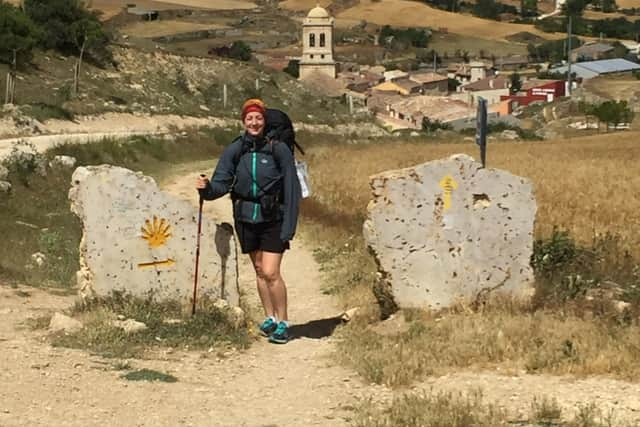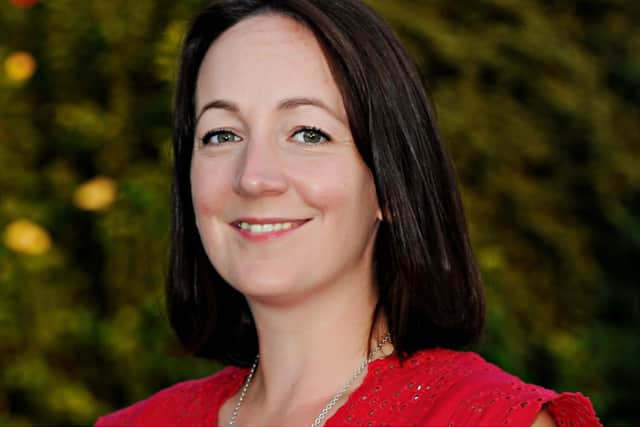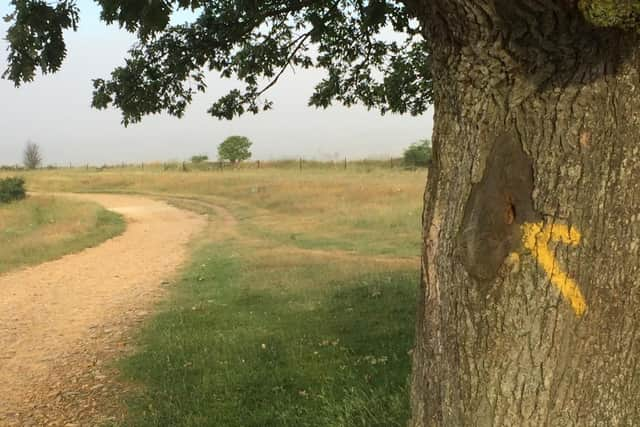How Leeds woman suffering digital overload used 500 mile solo Spain walk to inspire new business
and live on Freeview channel 276
Alex La Via, 36, said her relationship with technology "had grown unhealthy" and she was using TV programs on Netflix 'in a dark room' to try and switch off outside of work.
Alex realised she needed a change.
She flew to Spain and walked alone for 34 days - completing 500 miles on the Camino de Santiago.


Advertisement
Hide AdAdvertisement
Hide AdAlex said that her break from out of shift emails and constant connection to technology inspired her to change her life and set up a new business which would promote an alternative way of working.
She set up "Live More Offline" - a consultancy "helping leaders and teams to enhance wellbeing, performance and connection by creating a healthy digital culture".
Since then, Alex has worked with some of the largest companies across the world to help improve employee morale through healthy digital habits.
Describing the business, she told the YEP: "Live More Offline helps teams to enhance wellbeing, performance and belonging, by creating a healthy digital culture in an age of constant connection.


Advertisement
Hide AdAdvertisement
Hide Ad"We help workplaces with issues including always-on working, never-ending notifications, Zoom exhaustion, meaningful virtual socials and remote isolation.
"Digital working means that boundaries have blurred, our time spent in meetings keeps increasing and 65% of people check work email right before going to bed.
"With frequent notifications, people work in evenings and weekends to get their important work done at a quieter time."
Alex told the YEP her solo walk inspired the change in her lifestyle.


Advertisement
Hide AdAdvertisement
Hide AdShe said: "My passion for digital wellbeing came in the quiet of that trail, in seeing difference in how I felt in myself and in a resulting curiosity about how my digital habits had been affecting my wellbeing.
"The passion discovered on that trail, led to a masters degree researching impact of technology on wellbeing and working over the last three years with organisations across the UK to help them to improve wellbeing, performance and human connection through changes to digital habits."
Alex believes that despite some preconceptions of home working due to Covid being easier to handle, many employees have actually seen an increase in their workload.
She said: "If we have some people working predominantly in the office and some people predominantly remotely, those working from home could be under a greater pressure to reply more quickly and be online longer to prove their working, a term called digital presenteeism.
Advertisement
Hide AdAdvertisement
Hide Ad"In hybrid working, what will the impact be on those working from home, when those in the office are benefitting from in-person connection?
"And how about new starters without existing networks?
"Deepening human connection for remote workers is at the heart of creating an inclusive hybrid workplace."
"The thing I hear the most in my training is a sense of relief that people are not alone in the challenges they are facing.
"Many of us suffer in silence, thinking we’re not managing things well enough.
Advertisement
Hide AdAdvertisement
Hide Ad"But the reality is our human brains were not designed for isolation and constant stimulation.
"There’s a reason it is hard. But there’s also so much we can do to improve workplaces in a digital age.
"Even before COVID, organisations were becoming concerned about the mental health impacts of digital habits.
"Now it is at the heart of wellbeing and hybrid working strategy."